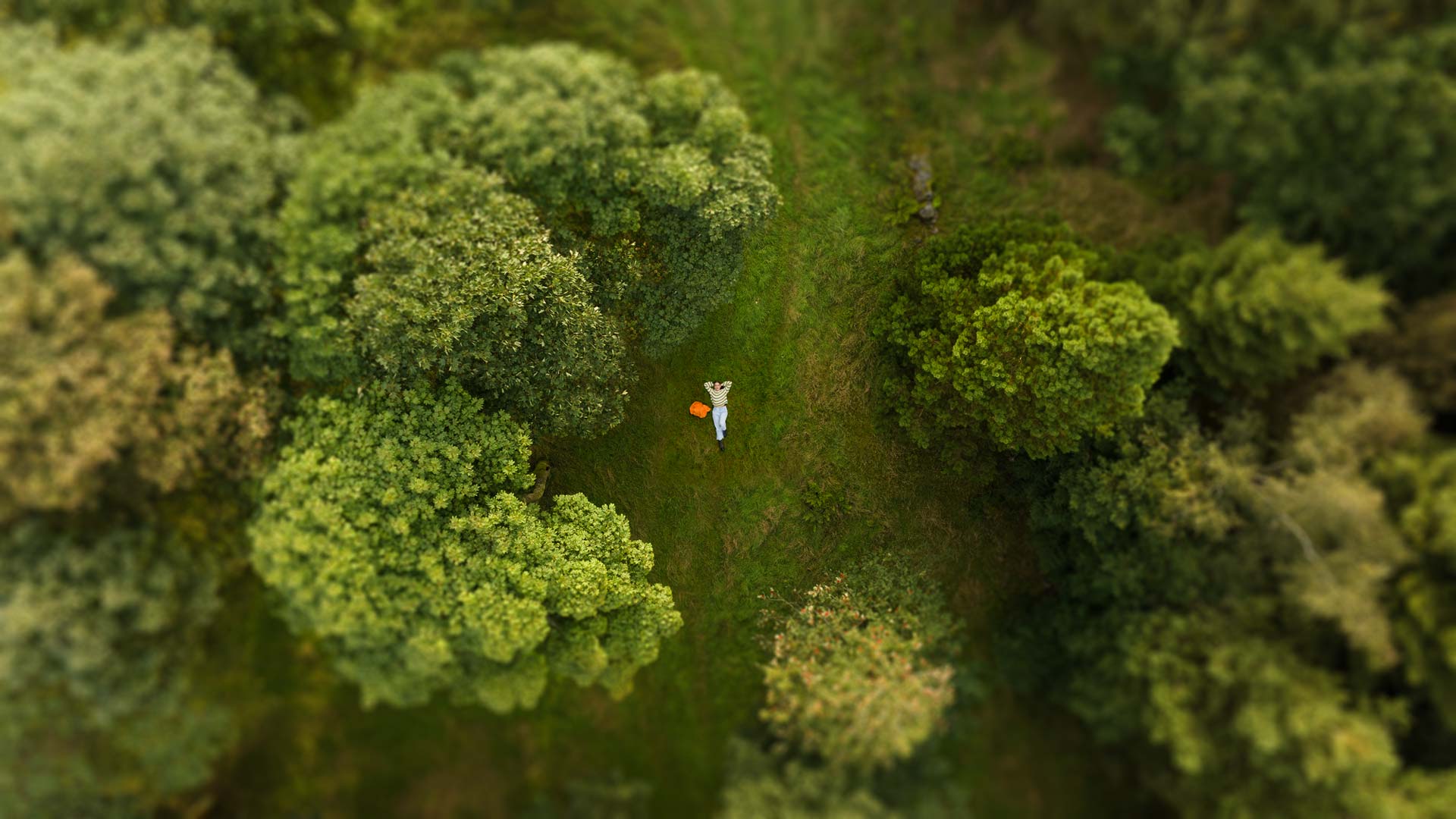
SDG 15: Life On Land 2025 Report
SDG 15 - Life on Land
Protect, restore and promote sustainable use of terrestrial ecosystems, sustainably manage forests, combat desertification, and halt and reverse land degradation and halt biodiversity loss
The University of Huddersfield is taking active steps to protect and restore nature both on campus and beyond. From tree planting and wildlife habitats to biodiversity-friendly landscaping and biophilic building design, the University is creating greener spaces that benefit both people and the planet. Research projects - including forest monitoring in Kenya and long-standing wetland conservation efforts - further demonstrate the University's commitment to protecting ecosystems and biodiversity around the world.
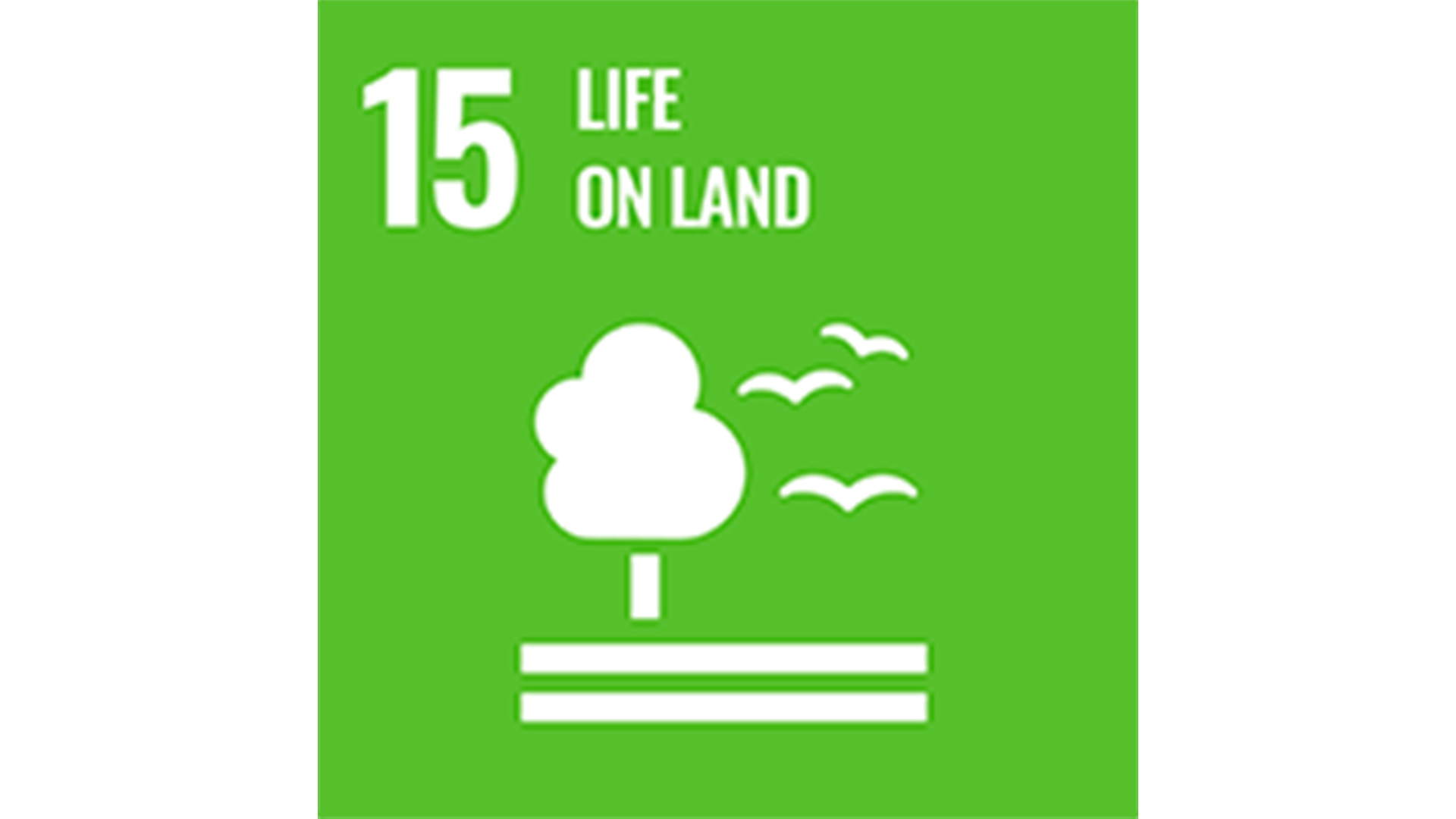
Public and business engagement
Tree-planting scheme
The University is committed to enhancing local ecosystems and advancing its carbon mitigation goals through active involvement in tree planting and exploration of potential peatland restoration opportunities. Since 2023, it has collaborated with Kirklees Council and White Rose Forest to deliver a large-scale tree planting initiative across the region. Each winter, around 150 student and staff volunteers help plant up to 2,000 trees, supporting biodiversity, reducing carbon emissions, and fostering environmental education, wellbeing, and community engagement.
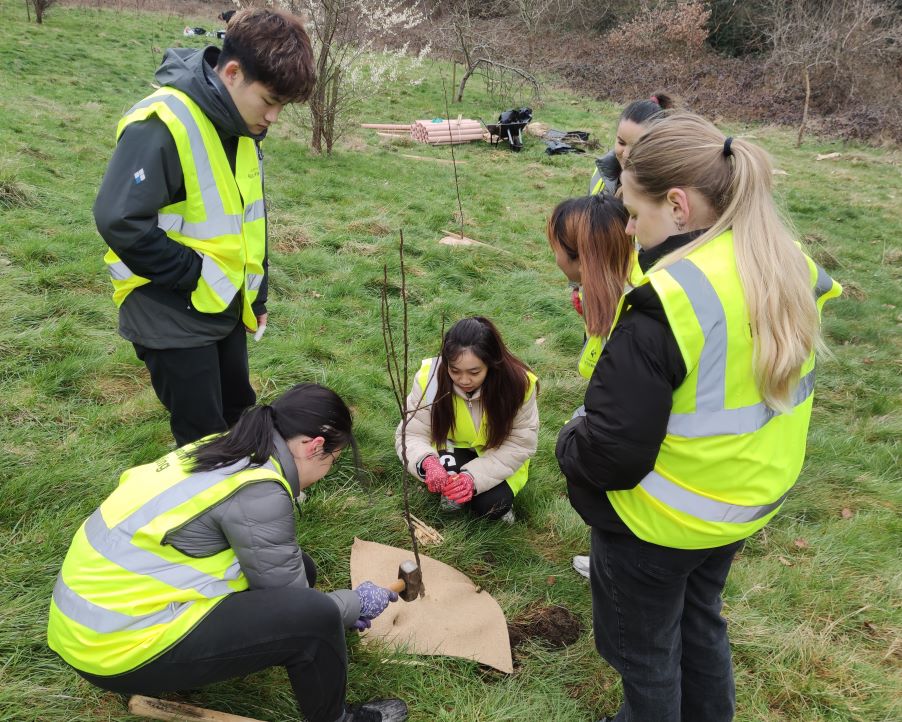
Operations
Feel Good Gardening Gang
The University has made significant efforts to enhance the biodiversity on its campuses, and to bring about positive people-nature connections through investment in green spaces, landscaping and habitat creation, and student and staff engagement programmes.
Through its Feel Good Gardening Gang, the University allows students and staff to access mini allotments and planters to grow their own fruit and vegetables. A series of gardening workshops held in the allotment spaces, such as ‘Tiny Tinned Tomatoes’ and ‘Mushroom Buckets’, have encouraged greater interest in food growing as well as wellbeing and social cohesion. Staff and students are encouraged to forage from the mini orchards and herb gardens around campus, and harvested produce is also used in seasonal dishes in our cafes.
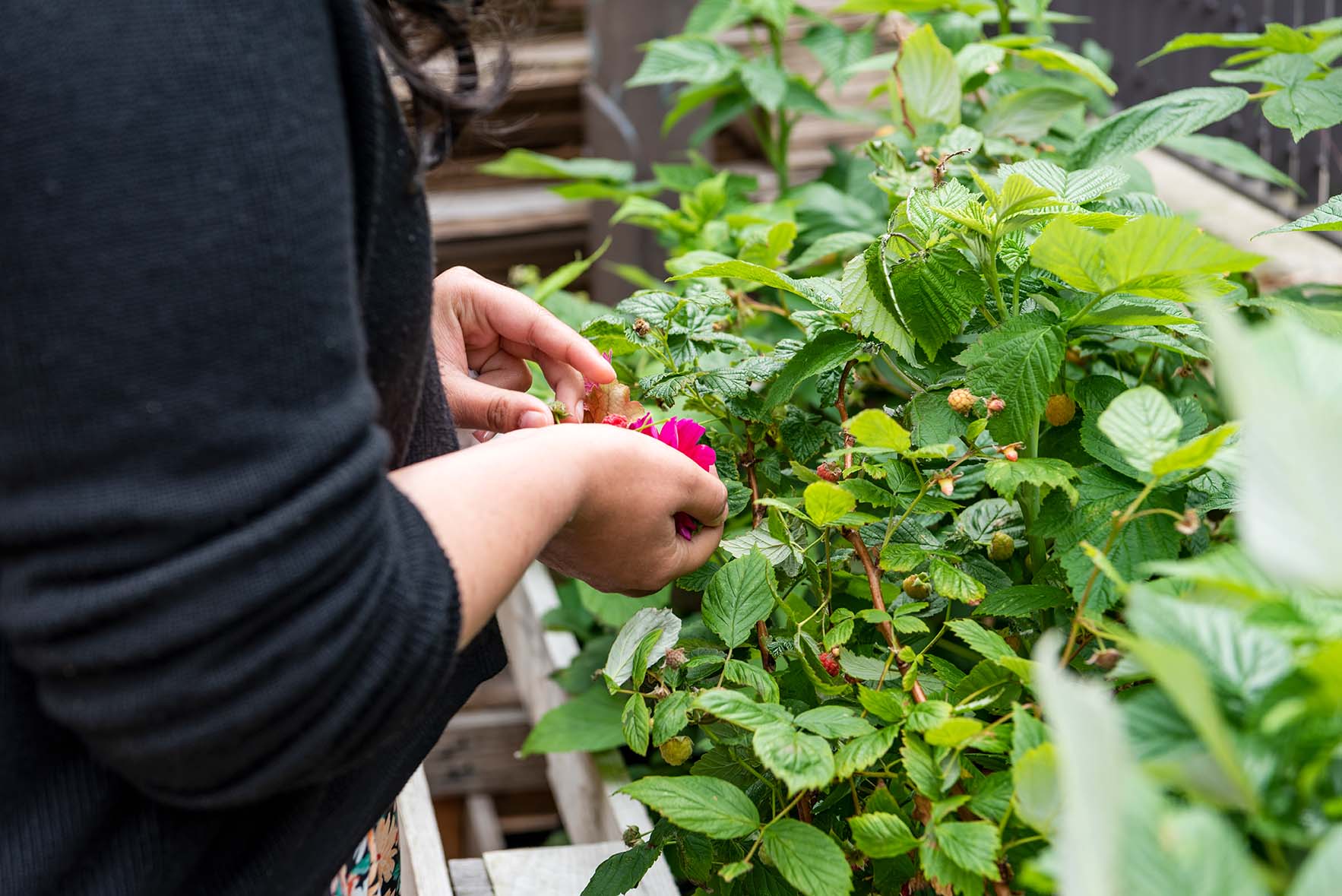
Our new buildings
The Jo Cox More in Common Centre and Daphne Steele Building, the University’s newest additions, exemplify a commitment to sustainability and wellbeing, having both achieved the highest Platinum level of the WELL standard. These buildings foster a strong connection to nature through biophilic design elements, including green moss feature walls, indoor planters, and expansive outdoor terraces with trees and herb gardens. Natural colours and patterns are woven throughout the interior spaces, seamlessly blending the outdoors with the built environment.
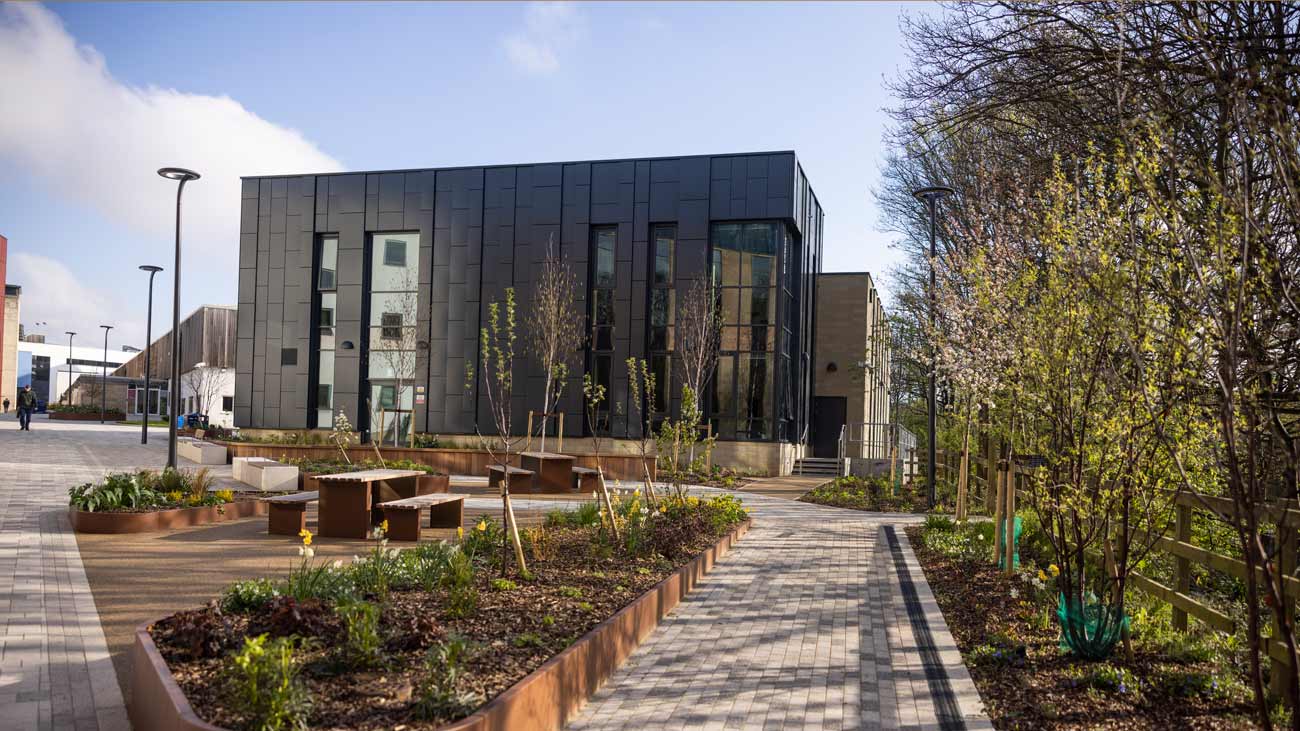
Grounds management activities to support biodiversity
The University actively promotes biodiversity across its campuses through a range of sustainable grounds management practices. These include installing and monitoring nest boxes for birds, bats, bumblebees, and lacewings, as well as creating habitat piles to support ground-dwelling species—guided by expert advice from organisations like the RSPB.
Fallen trees are repurposed on-site to benefit wildlife and the environment, often used for habitat structures or converted into bark chippings for organic weed control. A robust tree planting programme ensures that for every tree removed, three mature native species are planted, alongside wildflowers to attract pollinators such as butterflies. Additionally, coffee waste from campus cafés is reused to enrich soil and support healthy plant growth.
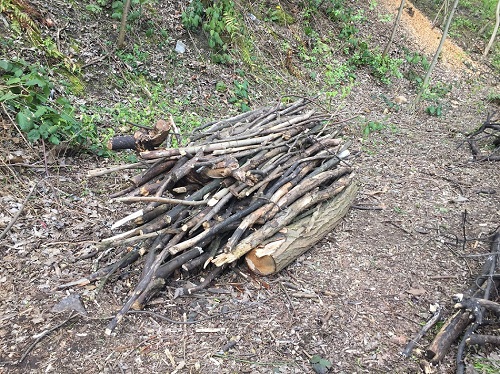
Engagement with external consultants and ecologists
Since 2021–22, the University has engaged with external consultants to shape its biodiversity policies and practices across campus. A comprehensive baseline biodiversity survey conducted in 2021 laid the foundation for future biodiversity action plans. Ecologists have also been involved in the early design stages of new campus buildings, conducting site-specific assessments of arboriculture, bat populations, and broader ecological factors. To safeguard against pollution, the University has implemented a robust management plan, with spillage kits readily available on-site and carried by waste contractors.
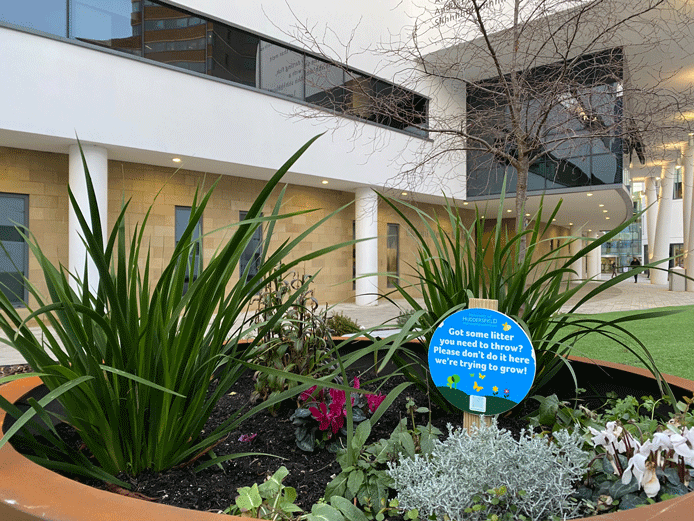
We're working hard to eliminate plastic use in our food outlets
We have successfully replaced all plastic disposable take away, salad and hospitality boxes with biodegradable alternatives. All takeaway containers purchased by the catering department in 23/24 were compostable or recyclable, and we meet regularly with suppliers to review the sustainability of our disposable products.
We also replaced plastic cutlery with a birchwood alternative in April 2023 ahead of the single-use plastics ban implemented in October 2023, and the 23/24 academic year 101,000 birchwood cutlery items replaced plastic ones. At three of our outlets, we promote the use of reusable metal cutlery to our dine-in customers.
Our research
Centre for Wetlands, Environment and Livelihoods
The University of Huddersfield is directly involved in protecting and enhancing the biodiversity of vulnerable ecosystems, supporting both plant and animal life. For example, the Centre for Wetlands, Environment and Livelihoods has been involved in research, teaching and field activities concerned with African development and the environment for more than four decades.
Their work links field research to teaching and advisory support for a number of NGOs and government agencies. They have also worked with a range of international development agencies such as the UN’s Food and Agriculture Organisation, the World Bank and UK AID / DFID, together with the governments of Zambia, Ethiopia and Malawi, and with the World Conservation Union and the Ramsar Convention.
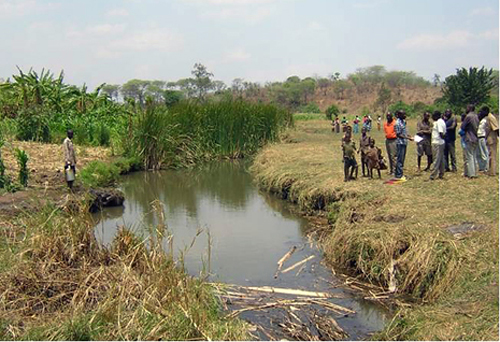
Research case study: Tackling illegal logging in Kenya
Researches from the University are helping to tackle illegal logging in Kenya, through the development of a smart detection system using sound sensors and wireless technology. These sensors, placed in forests, listen for the sound of chainsaws and send audio data in real time to the cloud, where a machine learning model identifies suspicious activity. The system is trained using open-source forest sound datasets and is designed to tell chainsaws apart from other natural noises, supporting quicker response and better protection of forest ecosystems.
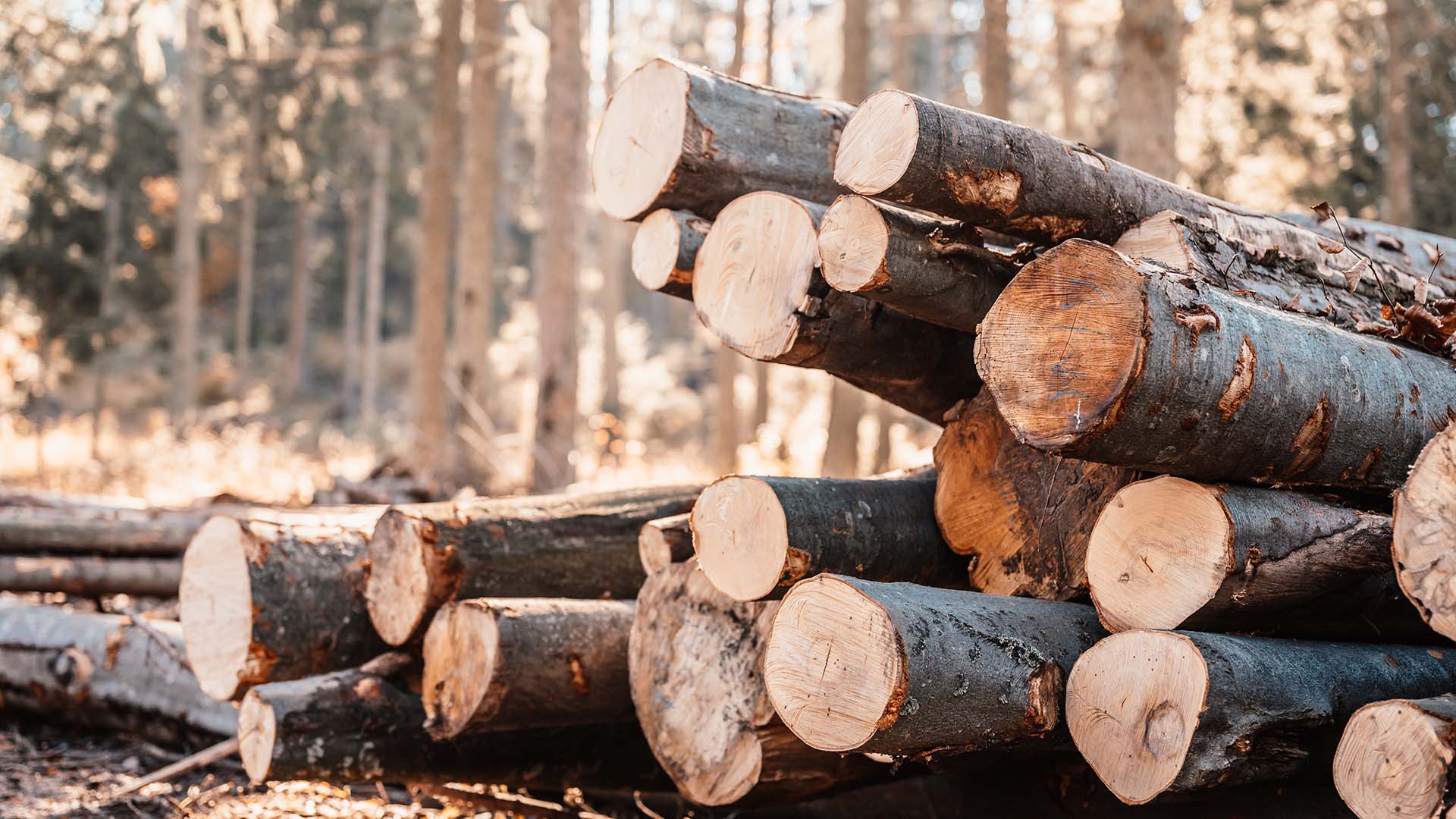
Find further information
Sustainability strategy
Find out more about our sustainabilty strategy, including our Carbon neutral strategy: A Ten-Point Plan for the Planet.
WELL Building Standard
We're proud to follow the WELL Building Standard in our new buildings, supporting our overall sustainability goals.
Biodiversity at The University of Huddersfield
There are a variety of initiatives taking place both on and off campus aimed at enhancing biodiversity and connecting people with nature.
Sustainable Development Goals
Click to explore our other sustainable development goal pages and get to know how we're working towards these at the University of Huddersfield.